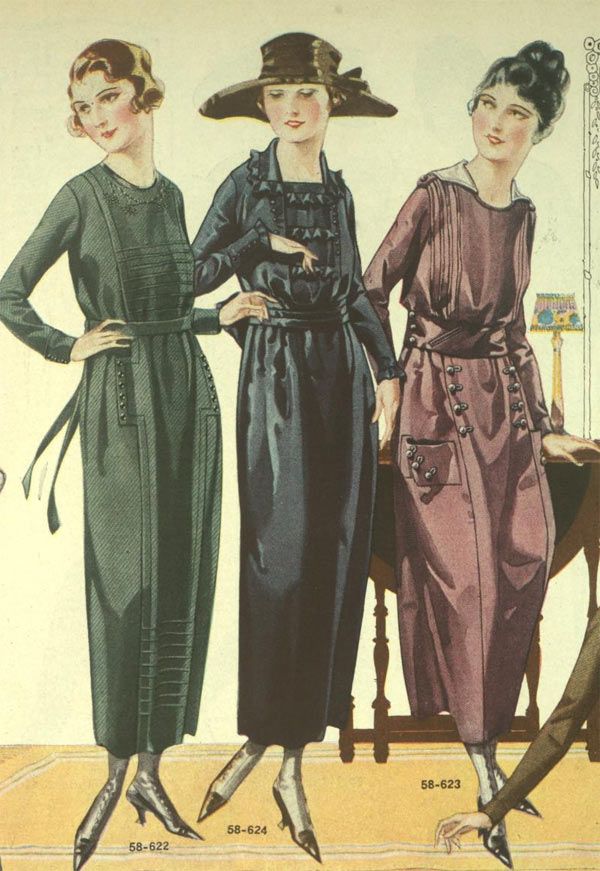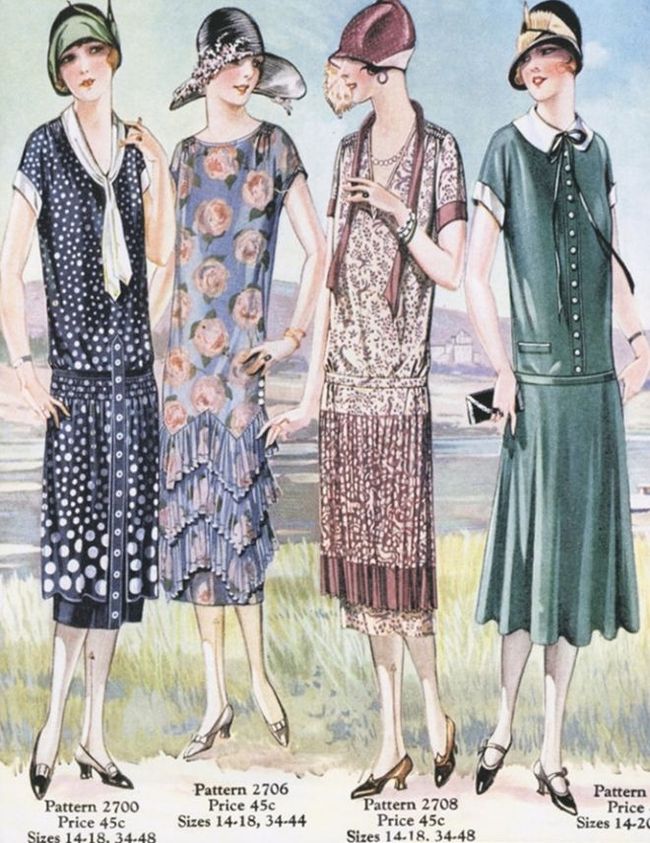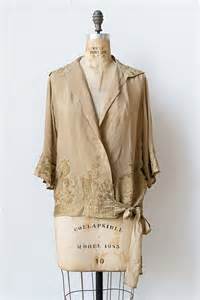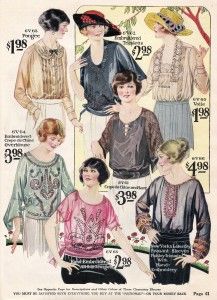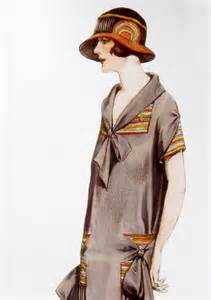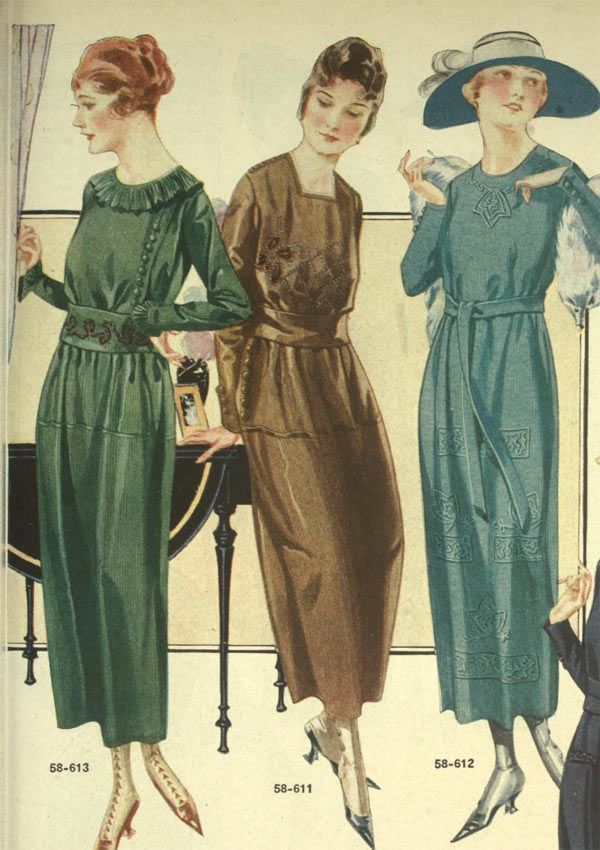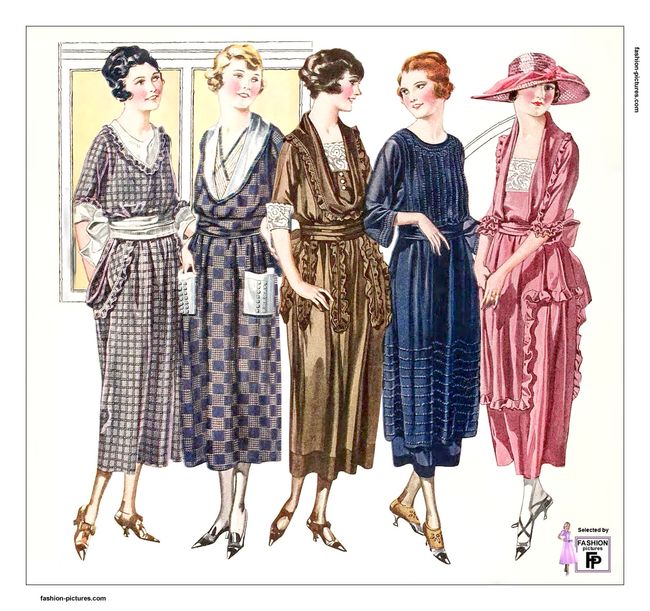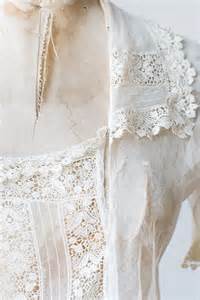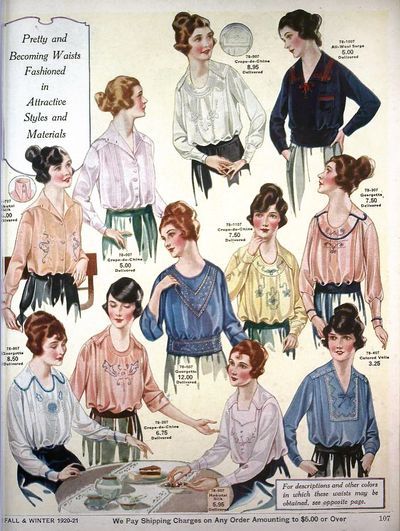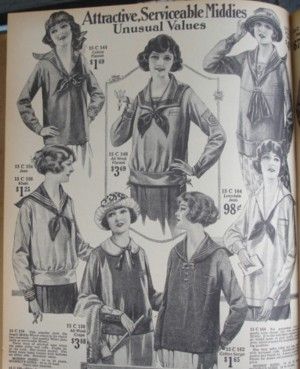1914 - 1923
TOWARD THE NEW WOMAN
The new woman of the 1920s with her bobbed hair and knee-length dress emerged gradually.
The evolution to the modern female silhouette took around ten years and started just before World War I.
Maybe the most fundamental change was the gradual revelation of the lower part of women’s legs, which put a new emphasis on shoes and, more importantly, on stockings.
Flesh and soft pastel colors replaced the dark stockings of the previous age and were made of real or very shiny artificial silk.
Equally noticeable was a change in the fashionable ideal: the statuesque, shapely, mature woman was replaced by her bosomless, hapless, thighless, much younger sister.
Waistlines rose and dropped, finally settling around the hips.
The new silhouette and less rigid clothing necessitated different kinds and fewer items of underwear.
BLOUSES
Pullover blouses, like these two examples from a 1922 pattern book, were popular in the early 1920s.
Those intended to be worn over the skirt usually had a band, sash, bow, or other feature at the low waistline.
Women could choose from a variety of necklines to complement their jacket or cardigan.
Nautical styles remained in favor, blouses with sailor collars being advertised as “middies” in the US after the shirt of the midshipman.
1914 - 1923
新女性到来
二十世纪20年代的新女性,伴着她们的短发与及膝裙纷至沓来。
这场现代女性的变革花了十年左右,起始于第一次世界大战前。
也许最根本的变革是女性腿部下半部分被缓缓揭开,新的重点被放在了鞋子上,更重要的,还有袜子。
肉体色与柔和色取代了先前的黑色丝袜,并且由真正的或闪亮的人造丝制成。
同样显著的是一场时尚理想的变化:雕塑般的,身材匀称的成熟女人造型,被玩世不恭,耍酷,小臀部的年轻姑娘取代。
腰线上升又下降,最终在臀围线上固定。
新的造型与更灵活的服饰开始需要不同种类的内衣。
衬衫
套头衬衫,就像1922年图案册中的这些例子,在当时很受欢迎。
那些打算穿着盖住裙子衬衫的人,通常会在低腰线上系一个绑带或者打个结。
女性可以选择各式的领子来完成与外套或者针织开衫的搭配。
航海风格仍然受到青睐,船员衬衫被美国广告宣传为middies水手衫。
